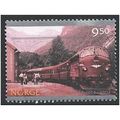Berlin, Germany (West) - Free University - postcard c.1950s
- Condition : Used
- Dispatch : 2 Days
- Brand : None
- ID# : 179879861
- Quantity : 1 item
- Views : 175
- Location : United Kingdom

- Seller : justthebook (+1703)
- Barcode : None
- Start : Thu 18 Apr 2019 16:46:07 (EDT)
- Close : Run Until Sold
- Remain : Run Until Sold
Checks/Cheques
 for 1 item(s) edit
for 1 item(s) edit
Shipping Calculator
More Listings from This Seller view all
Seller's Description
- Postcard
- Picture / Image: Berlin [West] - Free University [c.1950s or 1960s]
- Publisher: Hans Anders
- Postally used: no
- Stamp: n/a
- Postmark(s): n/a
- Sent to: n/a
- Notes / condition:
Please ask if you need any other information and I will do the best I can to answer.
Image may be low res for illustrative purposes - if you need a higher definition image then please contact me and I may be able to send one. No cards have been trimmed (unless stated).
------------------------------------------------
Postage & Packing:
Postage and packing charge should be showing for your location (contact if not sure).
No additional charges for more than one postcard. You can buy as many postcards from me as you like and you will just pay the fee above once. Please wait for combined invoice. (If buying postcards with other things such as books, please contact or wait for invoice before paying).
Payment Methods:
UK - PayPal, Cheque (from UK bank) or postal order
Outside UK: PayPal ONLY (unless otherwise stated) please. NO non-UK currency checks or money orders (sorry).
NOTE: All postcards are sent in brand new stiffened envelopes which I have bought for the task. These are specially made to protect postcards and you may be able to re-use them. In addition there are other costs to sending so the above charge is not just for the stamp!
I will give a full refund if you are not fully satisfied with the postcard.
----------------------------------------------
Text from the free encyclopedia WIKIPEDIA may appear below to give a little background information (internal links may not work) :
*************
The Freie Universität Berlin (lit. "Free University of Berlin", often abbreviated as FU Berlin or simply FU) is a research university located in Berlin and one of the most prominent universities in Germany. It is internationally known for its research in the humanities and social sciences, as well as in the field of natural and life sciences. Founded in West Berlin during the early Cold War period and born out of the increasingly Communist-controlled Humboldt University, its name refers to West Berlin's status as part of the free world, as opposed to the Soviet-occupied "unfree" areas surrounding the city.
Freie Universität Berlin was one of nine German universities to win in the German Universities Excellence Initiative, a national competition for universities organized by the German federal government. Winning a distinction for five doctoral programs, three interdisciplinary research clusters (some of them in cooperation with other universities) and its overall institutional strategy as an "International Network University",Freie Universität Berlin is one of the most successful universities in the initiative.
Freie Universität Berlin was established by students and scholars on 4 December 1948. The foundation is strongly connected to the beginning of the Cold War period. The University of Berlin was located in the former Soviet sector of Berlin and was granted permission to continue teaching by the Soviet Military Administration in Germany (SMAD) in January 1946. The universities were increasingly influenced by communism as they were ground for the political disputes of the postwar period. This led to protests by students critical of the prevailing system. Between 1945 and 1948, more than 18 students were arrested or persecuted, some even executed by the soviet secret police (NKVD).
At the end of 1947, first students demanded a university free from political influence. The climax of the protests was reached on 23 April 1948: after three students were expelled from the university without a trial, about 2,000 students protested at the Hotel Esplanade.[2] By the end of April, the governor of the United States Army Lucius D. Clay gave the order to legally check for the formation of a new university in the western sectors. On 19 June 1948 the "preparatory committee for establishing a free university" consisting of politicians, professors, administrative staff members and students, met. With a manifesto titled "Request for establishing a free university in Berlin" the committee appealed to the public for support. The municipal authorities of Berlin granted the foundation of a free university and requested the opening for the coming winter semester 1948/49. Meanwhile, the students committee in the German Democratic Republicprotested against the formation, the GDR described the new university as the "so-called free university" in official documents until the fall of the Berlin Wall.
The Council-manager government accepted the by-law on 4 November 1948. The by-law achieved prominence under its alias "the Berlin model": Freie Universität was founded as a statutory corporation (Körperschaft des öffentlichen Rechts) and was not directly subjected to the state, as it was controlled by a supervisory board consisting of six representatives of the state of Berlin, three representatives of the university and students. This form was unique in Germany at that time, as the students had much more influence on the system than before. But until the 1970s, the involvement of the students in the committees was slowly cut back while adapting to the model of the western German universities in order to be fully recognized as an equivalent university. On 15 November 1948, the first lectures were held in the buildings of the Kaiser Wilhelm Society for the Advancement of Science. The actual foundation took place on 4 December 1948 in the Titania palace, the film theater with the biggest hall available in the western sectors of Berlin. Attendants of the event were not only scientists, politicians (the Governing Mayor Ernst Reuter amongst others) and students, but also representatives of American universities, among them Stanford University and Yale University. The first elected president of the FU Berlin was the historian Friedrich Meinecke.
In 1949, Freie Universität already registered 4,946 students. Until the construction of the Berlin Wall in 1961, many students came from the soviet sector, often supported through the "Währungsstipendium" of the senate.
On 26 June 1963, the same day he held his famous Ich bin ein Berliner speech at Rathaus Schöneberg, John F. Kennedy was awarded honorary citizen by the Freie Universität and held a ceremonial speech in front of the Henry Ford building in which he addressed the future of Berlin and Germany under the consideration of the motto of the FU. Amongst the attendant crowd are also the Governing Mayor of Berlin Willy Brandt and the Chancellor of Germany Konrad Adenauer.[2] His brother, Robert F. Kennedy visited Freie Universität in 1962[4] for the first time and in June 1964 for receiving his honorary degree from the Department of Philosophy. The speech he held at the event was dedicated to John F. Kennedy, who was assassinated just the year before.[5]
In the late 1960s, Freie Universität was one of the main scenes of the German student movement of 68 as a reaction to the global student protests during that time. After the assassination of student Benno Ohnesorg and the attempt on Rudi Dutschke's life, protests quickly escalated to violence in all of Germany. The events of the 68-movement provided the impulse for more openness, equality, and democracy in German society.
During the 1970s and the 1980s, the university became a "Massenuniversität" (mass/mega university) with 50,298 registered students in 1983. After reunification, Freie Universität was the second largest university in Germany (after the Ludwig Maximilian University of Munich) with 62,072 students in the winter term of 1991/92. Shortly thereafter, the senate of Berlin decided to drastically reduce the places until 2003, the number of students shrank to 43,885 in the winter term of 2002/03. Since 2000, the Freie Universität Berlin has revamped itself. The university's research performance increased markedly with regard to the number of graduates, PhDs granted, and publications. Underlying this successful trend were fundamental reforms such as the introduction of modern management systems in the administration, a reorganization of the departments, and an efficient utilization of resources. The Prognos AG, the renowned economic consulting corporation founded by the University of Basel, Switzerland, presented Freie Universität with an award for its good entrepreneurial principles.
- Postcard
Listing Information
| Listing Type | Gallery Listing |
| Listing ID# | 179879861 |
| Start Time | Thu 18 Apr 2019 16:46:07 (EDT) |
| Close Time | Run Until Sold |
| Starting Bid | Fixed Price (no bidding) |
| Item Condition | Used |
| Bids | 0 |
| Views | 175 |
| Dispatch Time | 2 Days |
| Quantity | 1 |
| Location | United Kingdom |
| Auto Extend | No |



















